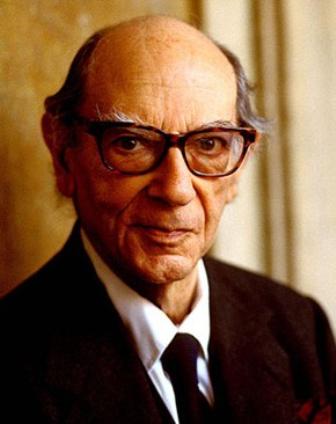The Answer
....that no single key, no formula can, in principle, solve the problems of individuals or societies; that general solutions are not solutions, universal ends are never real ends.... ...that liberty--of actual individuals, in specific times and places--is an absolute value; that a minimum area of free action is a moral necessity for all men, not to be suppressed in the name of abstractions or general principles so freely bandied about by the great thinkers of this or any age, such as ... humanity, or progress...names invoked to justify acts of detestable cruelty and despotism, magic formulas designed to stifle the voices of human feeling and consience.
This is Isaiah Berlin describing the views of the great Russian thinker Alexander Herzen (1812-1870), although I think he was also describing the views of the great Russian thinker Isaiah Berlin. It's from one of my all-lifetime-favorite books, Russian Thinkers. 
 (HT Dennis Whittle for reminding me of the Herzen chapter.)
(HT Dennis Whittle for reminding me of the Herzen chapter.)
Berlin presents the lite version of Herzen in a direct quote from his autobiography:
'Human life is a great social duty,' [said Louis Blanc], 'man must constantly sacrifice himself for society.'
'Why?' I asked suddenly.
'How do you mean "Why?"-but surely the whole purpose and mission of man is the well-being of society?' [said Blanc]
'But it will never be attained if everybody makes sacrifices and nobody enjoys himself.'
Another version of this I heard a long time ago, not sure where:
The purpose of life is to live for others.
Then what should the others live for?
 From Aid to Equality
From Aid to Equality
